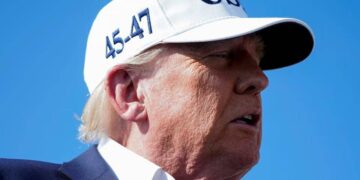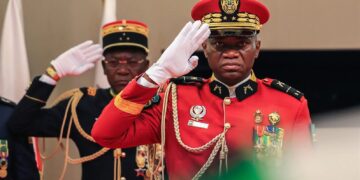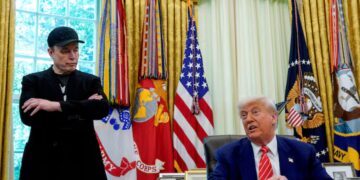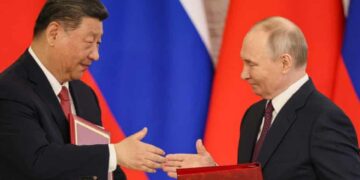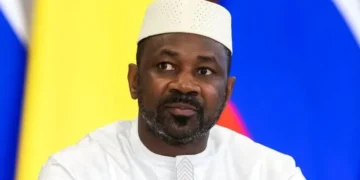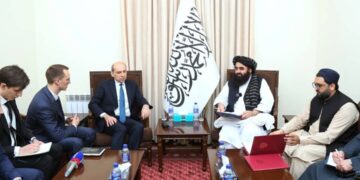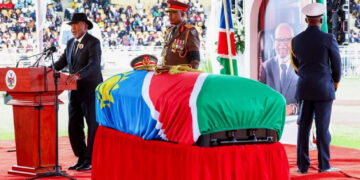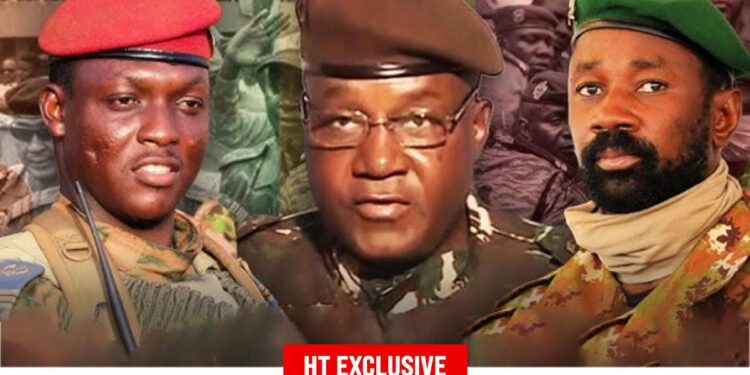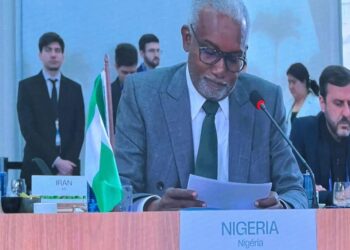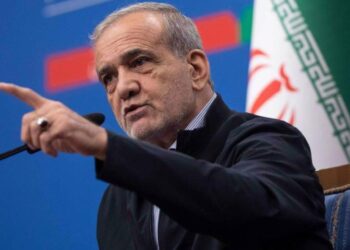By John Ikani
Senegalese Prime Minister Ousmane Sonko made a surprise diplomatic move on August 12 by visiting Mali’s capital, Bamako.
The unannounced trip highlights the urgency of regional politics in West Africa, as Sonko met with Mali’s interim leader, Colonel Assimi Goita, for discussions that could reshape relationships within the region.
The meeting is seen as a potential first step in rekindling Mali’s connection with the Economic Community of West African States (ECOWAS), an organization it left earlier this year.
Why Did Sonko Visit Mali?
Mali, along with Niger and Burkina Faso, cut ties with ECOWAS and formed a new coalition known as the Alliance of Sahel States.
These countries left the bloc due to concerns about ECOWAS’s alignment with France and its inadequate response to ongoing insurgencies in their regions. Their decision to form a separate alliance has created a rift that threatens the unity of West Africa.
Sonko’s sudden visit is believed to be part of a diplomatic strategy to re-establish connections with these breakaway states. ECOWAS has been attempting to mend these relationships by appointing special mediators, including Senegal’s President Bassirou Faye, who has been actively working to bring Mali, Niger, and Burkina Faso back into the fold.
What Happened in the Meeting?
The details of Prime Minister Sonko’s conversation with Colonel Goita remain mostly undisclosed. However, Sonko described the discussions as “frank and brotherly,” suggesting open and direct communication.
He emphasized that both nations agree on how their relations should proceed, signalling that Mali and Senegal are on the same page regarding regional cooperation. Sonko also assured that Senegal would not support any attempts to destabilize Mali or impose sanctions against it, aiming to build trust with Mali’s leadership.
Regional Stability at Stake
The departure of Mali, Niger, and Burkina Faso from ECOWAS poses a significant threat to the unity and stability of West Africa. ECOWAS, formed to promote economic cooperation and political stability among its members, faces a critical test.
If it cannot bring these nations back into the bloc, the organization risks losing its influence and effectiveness. President Faye, during a previous visit to Mali, noted that while Mali’s stance was firm, there was still room for negotiation. This suggests that dialogue remains a viable option.
Senegal’s Role in Reconciliation
Senegal is taking a proactive role in these diplomatic efforts. Prime Minister Sonko’s visit to Mali shows that Senegal is committed to finding a peaceful resolution to the regional divide.
By engaging directly with Mali’s leadership, Senegal aims to foster mutual understanding and encourage the breakaway states to consider rejoining ECOWAS. President Faye has also visited Burkina Faso, advocating for continued dialogue and cooperation.
What’s Next for ECOWAS?
The outcome of these diplomatic efforts will be crucial for the future of ECOWAS. If Senegal’s efforts succeed, it could pave the way for Mali, Niger, and Burkina Faso to reintegrate into the bloc, strengthening regional solidarity.
However, if these attempts fail, ECOWAS could face further fragmentation, weakening its ability to address economic and security challenges in West Africa.
Senegal shares a 500-kilometer border with Mali, making stability in the region a priority for both countries. As diplomatic efforts continue, the coming months will be decisive in determining whether West Africa can maintain its unity or face further division.
The stakes are high, and the path forward remains uncertain, but Senegal’s active diplomacy signals a commitment to finding a peaceful and collaborative solution.







